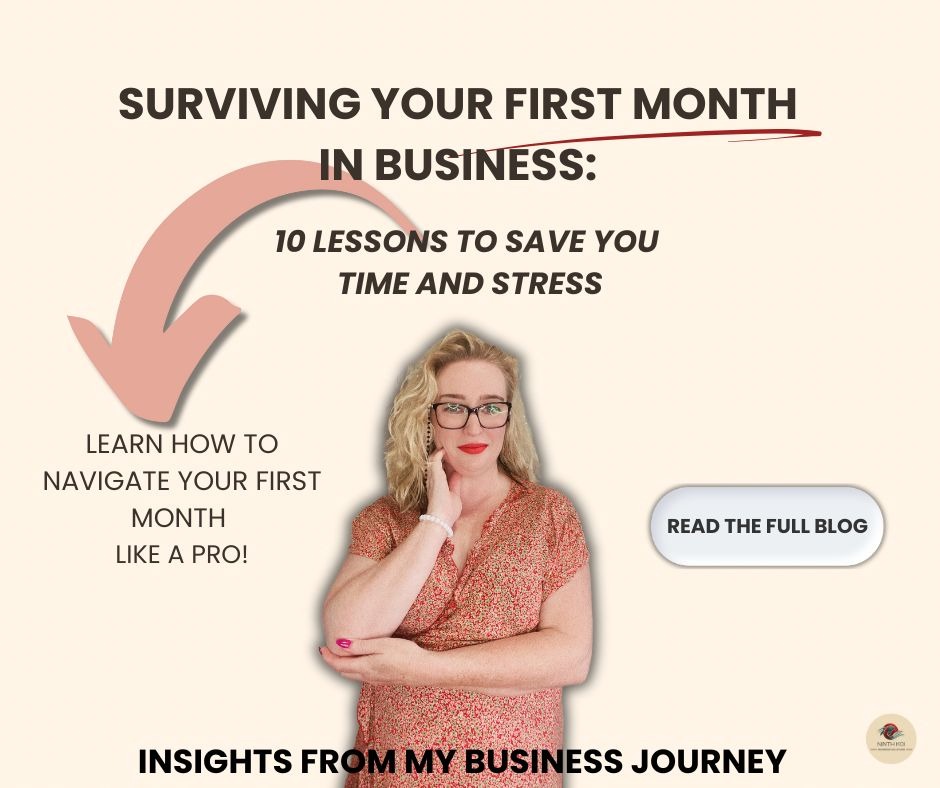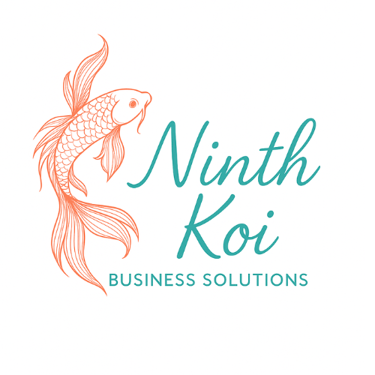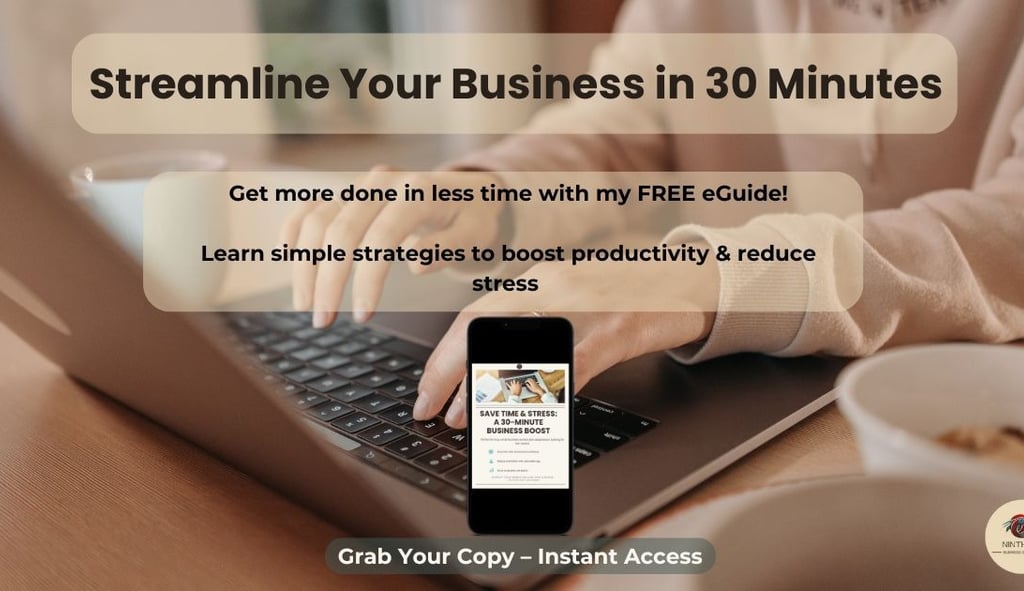10 Lessons I Learned in My First Month of Business—and How You Can Apply Them
Discover 10 valuable lessons from my first month in business! From pricing strategies to managing imposter syndrome, this blog is packed with practical tips to save time, reduce stress, and help you thrive as an entrepreneur.
Caroline Jones
1/31/20255 min read


Starting my own business has been a whirlwind. The first month has been filled with exciting milestones, a few surprises, and plenty of lessons. If you’ve just launched your own venture or are thinking about starting one, I hope these insights help you navigate the early stages of your journey with a little more confidence. Here are the 10 lessons I’ve learned in my first month and actionable tips to help you apply them to your business.


1. Pay Before Service
One of the first lessons I learned was the importance of setting clear payment terms upfront. Early on, I hesitated to ask for payment before starting work because I wanted to build trust with my clients, especially if they were friends and family. Unfortunately, this led to some delays in receiving payments, which added unnecessary stress.
Actionable Tip: I use Hnry to send invoices with clear payment terms. Consider requiring a deposit or full payment upfront for smaller projects to avoid cash flow issues.
Reflection: As my business grows, I’m exploring projects and retainer agreements to formalise this process further. It’s all about creating a system that protects both you and your client.


2. Don’t Be Scared to Charge Your Worth
Undercharging is something many new business owners struggle with, and I was no exception. At first, I undervalued my expertise, thinking lower rates would attract more clients. But I quickly realised that charging what you’re worth isn’t just about making money—it’s about showing confidence in the value you bring.
Actionable Tip: Research industry rates and don’t be afraid to adjust your pricing as you gain experience. For example, in Australia, virtual assistants typically charge $40–$75 per hour. Use that as a guide.
Reflection: As my confidence grows, I’m moving towards value-based pricing that reflects my expertise and the results I deliver.


3. Systems Are Your Friend
As my neurospicy brain likes to go on side-quests, I quickly realised that systems are crucial for managing tasks and staying on top of everything. Tools like Notion and Trello have been lifesavers for tracking projects and deadlines.
Actionable Tip: Automate repetitive tasks with tools like Zapier and organise tasks with Trello or Notion. Start with simple workflows and build from there.
Reflection: As my workload increases, I’m looking into more robust project management tools and exploring automation for time-consuming tasks.


4. Commit to Putting the Phone Down and Turning Your Laptop Off
It’s easy to blur the lines between work and personal time, especially when you’re passionate about what you do. In my first month, I found myself constantly checking emails and social media. It was exhausting.
Actionable Tip: Set specific work hours and stick to them. Use your phone’s “Do Not Disturb” mode after hours to disconnect.
Reflection: Building work-life balance habits early is essential for avoiding burnout. As I grow, I’ll keep refining these boundaries.


5. Imposter Syndrome Is Going to Happen
Starting something new often comes with feelings of self-doubt. There were moments when I questioned whether I was qualified enough to do this. But I learned to push through by focusing on the positive feedback from clients.
Actionable Tip: Keep a “win folder” where you store positive testimonials, milestones, and achievements. When self-doubt creeps in, revisit this folder to remind yourself of what you’ve accomplished.
Reflection: Imposter syndrome doesn’t go away entirely, but it becomes easier to manage when you celebrate your wins.


6. Your Friends and Family Won’t Be Your Biggest Online Supporters
This one surprised me. While friends and family are incredibly supportive emotionally, they weren’t the ones engaging with my content online. My audience came from people I knew less well, networking and connecting with like-minded professionals.
Actionable Tip: Focus your energy on building a community of clients and peers who value your expertise. Platforms like LinkedIn can be great for this.
Reflection: I’ve learned that your biggest supporters might be strangers who truly connect with your work—and that’s okay.


7. Boundaries
In the beginning, I wanted to say yes to everything. But I quickly realised that overcommitting leads to stress and decreased quality of work.
Actionable Tip: Use client agreements to set clear expectations around timelines, communication, and scope of work.
Reflection: Setting boundaries early has helped me maintain control over my schedule and deliver my best work.


8. Profit First Accounting Model
Finances can feel overwhelming when you’re just starting out. Adopting the Profit First model has helped me allocate funds for profit, expenses, and taxes right from the beginning.
Actionable Tip: Open separate bank accounts for each category (e.g., income, expenses, taxes) to simplify tracking.
Reflection: This system has made managing finances less stressful and ensures I’m always prepared for tax time.


9. Schedule Your Calendar
Time management is critical in the early stages of business. Calendar blocking has been a game-changer for me, allowing me to allocate specific times for tasks, meetings, and creative work.
Actionable Tip: Use tools like Google Calendar to create a weekly schedule. Include buffer times to account for unexpected tasks.
Reflection: As my business grows, I plan to refine my scheduling to balance client work and business development.


10. Write Down Your Ideas
Some of my best ideas have come when I wasn’t actively working. Keeping a notebook or using an app like Evernote has helped me capture these moments of inspiration.
Actionable Tip: Dedicate a specific place for storing ideas, whether it’s a notebook or a digital tool.
Reflecting on these lessons, I realise how much growth can happen in just one month. Starting a business is challenging, but it’s also incredibly rewarding. These lessons aren’t just about survival—they’re about thriving and building a foundation for long-term success.
Which of these lessons resonated with you the most? I’d love to hear your thoughts in the comments. And stay tuned—this is only the beginning of the journey!
Frequently Asked Questions
1. What’s the best invoicing tool for small businesses?
Tools like Hnry, Xero and Stripe are excellent for sending professional invoices and tracking payments.
2. How can I determine the right pricing for my services?
Research industry averages and adjust based on your experience, overhead costs, and value provided.
3. What’s the Profit First accounting method?
It’s a system where you allocate a percentage of income to profit, expenses, and taxes to simplify financial management.
External Links
Australian Government Business Website – Small Business Advice and Resources.
Profit First Overview – Learn the Profit First Method
Ready to take control of your business and save time? Download my free eGuide, Streamline Your Business in 30 Minutes, and discover simple steps to boost productivity and reduce stress. Start working smarter today!
Ninth Koi Business Solutions
Tailored support for small businesses and solopreneurs.
Sign up to receive free tools, tips, and resources that will help your business grow effortlessly.
© 2025. All rights reserved.
Terms of Use & Refunds Policy




Ninth Koi Business Solutions proudly supports LGBTQIA+ inclusion, neurodiverse empowerment, and Aboriginal sovereignty.


